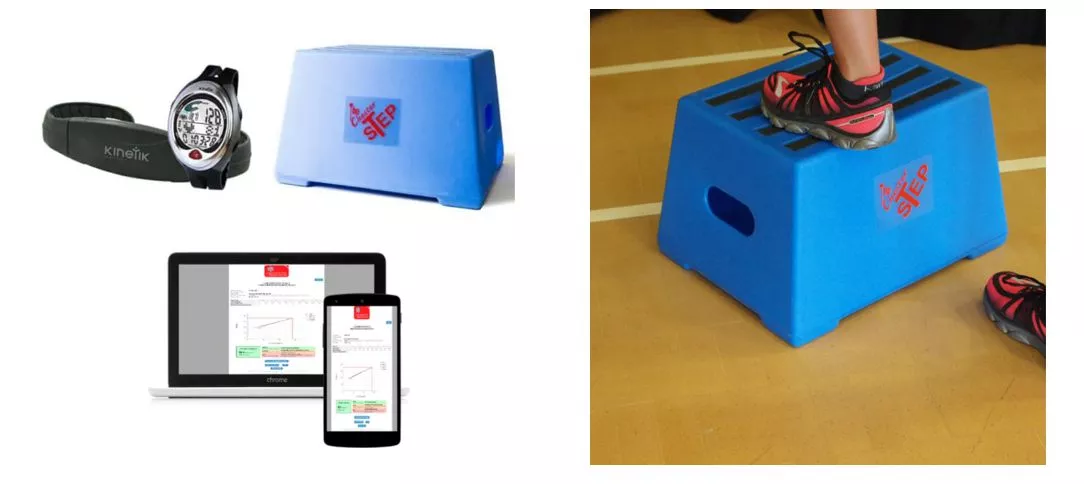Chester Step Test (CST)
The Chester Step Test is designed to test the general fitness of a delegate and is often a pre-requisite for working in roles of workplace settings including the fire, police, ambulance, military services, oil, gas and offshore wind farm industries and other scenarios where an aerobic capacity assessment is required.

Purpose
The Chester Step Test is industry recommended for medical fitness to work on offshore and onshore renewable energy projects.
Target Audience
For personnel who can be nominated by their company to complete a Chester Step Test for their role in the wind turbine and offshore industry.
This test is designed to test and individual’s aerobic fitness and capacity. The Chester Step Test is a sub maximal (this means you don’t have to work to exertion) test which requires you to step onto, and off a 30 cm / 12″ step (a standard gym bench), at a rate set by a metronome, sufficient to elicit a heart rate of around 80% max heart rate at a moderate level of exertion. It is a multi-staged test so every 2 minutes there is an increase in the rate of the step. Exercise heart rates are then plotted on a graph and an aerobic capacity and fitness rating may be calculated.
Objectives
The Chester Step Test is a method of measuring fitness by measuring the ability of the heart to recover from exertion. To achieve this, the test consists of stepping up and down a 30 cm / 12-inch step at a pace set by a metronome. During the test, your heart rate is monitored and the results are plotted on a graph showing your aerobic capacity and fitness.
Admission Requirements
-
Government issued ID;
-
Any medication, doctor/hospital certificates and results of concomitant/chronic diseases, if applicable;
-
Smoking and soft drinks (including coffee) are prohibited 2 hours before the test;
-
Comfortable clothing for the Chester Step Test.
Want to know more about Chester Step Test (CST)
Get in touch with our bookings team on +359 87 827 95 38 or email the team at varna@lerus-online.com







